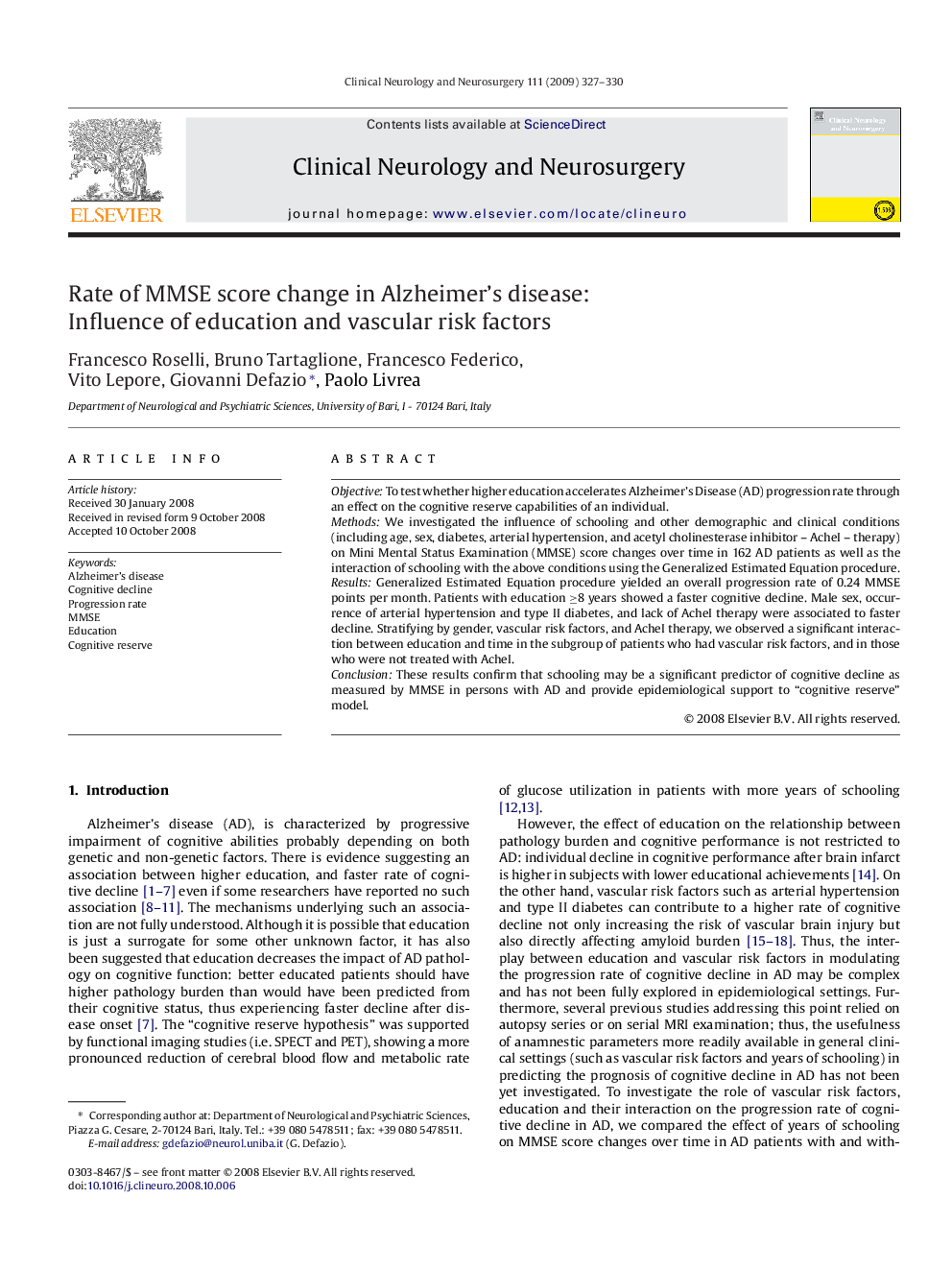| Article ID | Journal | Published Year | Pages | File Type |
|---|---|---|---|---|
| 3042085 | Clinical Neurology and Neurosurgery | 2009 | 4 Pages |
ObjectiveTo test whether higher education accelerates Alzheimer's Disease (AD) progression rate through an effect on the cognitive reserve capabilities of an individual.MethodsWe investigated the influence of schooling and other demographic and clinical conditions (including age, sex, diabetes, arterial hypertension, and acetyl cholinesterase inhibitor – AcheI – therapy) on Mini Mental Status Examination (MMSE) score changes over time in 162 AD patients as well as the interaction of schooling with the above conditions using the Generalized Estimated Equation procedure.ResultsGeneralized Estimated Equation procedure yielded an overall progression rate of 0.24 MMSE points per month. Patients with education ≥8 years showed a faster cognitive decline. Male sex, occurrence of arterial hypertension and type II diabetes, and lack of AcheI therapy were associated to faster decline. Stratifying by gender, vascular risk factors, and AcheI therapy, we observed a significant interaction between education and time in the subgroup of patients who had vascular risk factors, and in those who were not treated with AcheI.ConclusionThese results confirm that schooling may be a significant predictor of cognitive decline as measured by MMSE in persons with AD and provide epidemiological support to “cognitive reserve” model.
